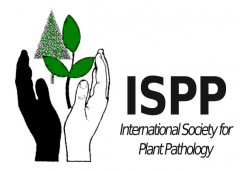
Research Topic: Novel Plant Molecules Regulating the Interaction with Pathogenic and Beneficial Fungi
Frontiers in Plant Science, Frontiers in Plant Microbe Interactions - Silvia Proietti, Ivan Baccelli
2019Authors:
About this Research Topic
Plants have evolved sophisticated biochemical mechanisms to interact with fungi. The interaction is regulated by the plant by means of molecular players that may be responsible for promoting beneficial interactions, or counteracting pathogenic interactions. Deep rewiring of plant signaling networks following recognition of the fungus underlie this complex interactions. The recognition of a pathogen triggers the activation of key genes responsible for the biosynthesis of defense compounds and the generation of secondary metabolites, such as phenolics and flavonoids. In addition, the host plant expresses many different kind of proteins to cope with fungal invasion, such as those involved in cell wall reinforcement. Changes in metabolic processes that may have a role in suppressing fungal invasion, such as those involved in programmed cell death and oxidative burst, can also occur. Similarly, during the interaction between plants and beneficial fungi it takes place a complex communication. Beneficial fungi can modify the plant transcriptome and the plant metabolome in order to establish a symbiotic contact with the roots. In turn, the plant produces molecules, such as strigolactones, during established fungal symbiosis to promote fungal germination, hyphal branching and fungal metabolism. Interestingly, the colonization by beneficial fungi can prime the plant defense system for an enhanced production of antimicrobial proteins and metabolites, resulting in a state of heightened resistance or tolerance to subsequent stress.
Epigenomic and proteomic studies, among others, have shown the complexity of the reprogramming that occurs at the protein and epigenetic levels when plants come into contact with pathogens or beneficial fungi. The increased use of “omics” technologies, such as genomics, transcriptomics, proteomics, metabolomics and epigenomics promises to generate much new knowledge on plant-fungal interactions, and can be used for the development of novel plant protection strategies, which is of great interest for plant biology and agriculture.
Therefore, this Research Topic will consider Research Articles, Reviews, Hypothesis and Theory, Perspective and Opinion articles, which address novel plant components regulating the interaction with both beneficial and pathogenic fungi, with the use of emerging technologies and associated bioinformatics tools. Noteworthy, studies using omics approaches are considered for review in Frontiers in Plant Science only if they are extended to provide meaningful and functional insights into the plant-fungus interactions.
In particular, we welcome contributions on the following topics:
-Novel root signals produced towards beneficial/pathogenic fungi. (i.e. photosynthesis-derived or stress-induced exudation, among others)
-Novel plant signals from aboveground which act in defense against fungal pathogens (i.e. secondary metabolites, VOCs)
-Novel cell components (TFs, enzymes, etc.) underlying the communication between host plants and beneficial/pathogenic fungi.
-Novel approaches and technologies to identify plant molecules regulating the interplay with beneficial/pathogenic fungi.
-Expected impact of novel plant molecules in future plant protection strategies.
Keywords: Pathogenic Fungi, Beneficial Fungi, Novel Regulatory Molecules
Important Note: All contributions to this Research Topic must be within the scope of the section and journal to which they are submitted, as defined in their mission statements. Frontiers reserves the right to guide an out-of-scope manuscript to a more suitable section or journal at any stage of peer review.




